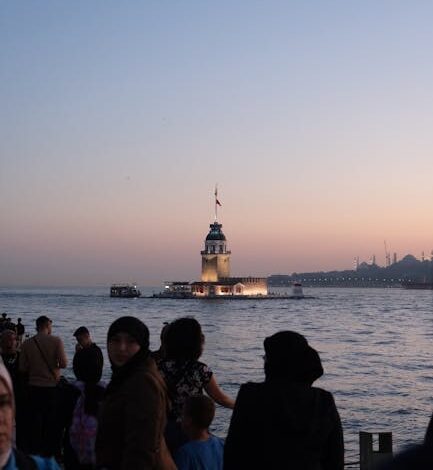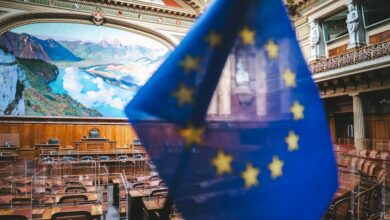The Expanding Digital Perimeter: Why Reddit Joined the Ban List

Navigating the digital landscape with children feels a lot like trying to steer a tiny boat through a vast, constantly shifting ocean. Every day brings new currents, new islands, and new challenges. For parents, educators, and even policymakers, the sheer speed and pervasive nature of social media can be overwhelming. We all want our kids to be safe, to explore, to connect—but also to avoid the darker, more predatory corners of the internet. It’s a delicate balance, and often, it feels like we’re perpetually behind the curve.
That’s why Australia’s latest move, expanding its social media ban for under-16s to include Reddit, alongside giants like Facebook, X, TikTok, YouTube, and Instagram, has certainly turned heads. Set to take effect on December 10, this isn’t just another policy tweak; it’s a significant statement about the responsibility of platforms and the paramount importance of protecting young, developing minds. But why Reddit? And what does this expanded ban truly mean for the future of online safety?
The Expanding Digital Perimeter: Why Reddit Joined the Ban List
When the initial list of banned platforms for under-16s was announced, many likely pictured the usual suspects: TikTok’s viral dances, Instagram’s filtered lives, Facebook’s sprawling networks, X’s rapid-fire discourse, and YouTube’s endless video streams. These are the platforms often synonymous with youth culture, self-expression, and, unfortunately, some of the most visible risks like cyberbullying, exposure to harmful content, and addiction.
Reddit, on the other hand, might not immediately spring to mind as a primary haunt for the under-16 crowd. It’s not traditionally image- or video-centric in the same way. It’s often considered the “front page of the internet,” a sprawling collection of niche communities, or “subreddits,” built around every conceivable interest. From discussions on advanced astrophysics to fan theories for obscure video games, from political debates to support groups, Reddit is a text-heavy, forum-style platform that thrives on user-generated content and anonymity.
Unpacking Reddit’s Unique Risks for Young Users
And therein lies its unique set of potential challenges for young users. While less overtly visual than some of its counterparts, Reddit’s strengths—anonymity, the ability to dive deep into niche topics, and largely unmoderated user discussions—can become significant liabilities for minors. Consider a few points:
- Unfiltered Content: Reddit hosts an enormous amount of content, much of which is mature, explicit, or even disturbing. While it has NSFW (Not Safe For Work) tags and community-specific rules, these can often be circumvented or are simply not enough to prevent accidental exposure for curious young minds.
- Echo Chambers and Misinformation: The platform’s structure, allowing users to subscribe to specific subreddits, can create powerful echo chambers where young people might be exposed to radical viewpoints, conspiracy theories, or harmful ideologies without diverse perspectives to counter them.
- Complex Discourse and Anonymity: Discussions on Reddit can be highly sophisticated, sarcastic, or aggressive. Anonymity, while empowering for some, can also lower inhibitions, leading to more aggressive or inappropriate interactions. Young users might struggle to discern intent or navigate complex social dynamics without the visual cues present on other platforms.
- Mental Health Impact: While there are many supportive communities, the nature of anonymous online interaction can also expose young people to cyberbullying, shaming, or content that negatively impacts their self-esteem and mental well-being, often without the direct accountability found elsewhere.
For Australian lawmakers, including Reddit in the ban seems to be a recognition that “social media” extends beyond just profile pictures and friend counts. It encompasses any platform where extensive user interaction and content consumption occur, particularly where the risks of exposure to inappropriate material and harmful interactions are high.
The Tightrope Walk: Enforcement, Digital Autonomy, and Parental Roles
Legislation is one thing; practical implementation is another entirely. The December 10 deadline will undoubtedly spark a flurry of activity for social media platforms and a new wave of discussions around dinner tables across Australia. The primary challenge, of course, lies in enforcement. How do you reliably verify the age of a user attempting to sign up, or even an existing user, without infringing on privacy rights or creating an insurmountable barrier to legitimate use?
Age verification technologies are constantly evolving, from AI-powered facial analysis to third-party identity verification services. However, no system is foolproof. Kids, being incredibly adaptable and often more tech-savvy than their parents, will undoubtedly look for workarounds: using older siblings’ accounts, entering false birthdates, or even employing VPNs to access platforms from locations not subject to the ban. This creates a digital cat-and-mouse game that platforms and parents will have to navigate.
Beyond the Ban: The Critical Role of Digital Literacy and Open Dialogue
This ban, while a powerful statement of intent, cannot be a standalone solution. It shines a spotlight on a broader truth: safeguarding children online requires a multi-faceted approach. Governments can legislate, and platforms can implement technical barriers, but the most crucial line of defense often lies within the home.
This policy, for all its potential to curb access, also highlights the urgent need for robust digital literacy education. Children need to understand not just what they can access, but how to critically evaluate information, recognize misinformation, identify online predators, and develop healthy digital habits. Banning access to certain platforms is a valuable boundary, but it doesn’t teach critical thinking skills, nor does it prepare them for the vast majority of the internet that remains accessible.
For parents, this ban serves as both a relief and a renewed call to action. It eases some of the immediate pressure, giving a clear guideline. Yet, it also underscores the enduring importance of open, honest conversations with their children about online safety, privacy, and responsible digital citizenship. Restricting access is a tool, but connection and communication are the foundations of true protection.
A Global Glimpse: Australia’s Stance and the Future of Digital Regulation
Australia isn’t alone in its concerns about the impact of social media on youth. Nations worldwide are grappling with similar dilemmas, from debates in the European Union over the Digital Services Act to various states in the US proposing their own age verification laws. However, Australia’s direct and comprehensive approach—banning under-16s from a wide array of popular platforms—sets a notable precedent.
This move reflects a growing global sentiment that the era of self-regulation for social media companies might be drawing to a close, at least concerning vulnerable populations. Governments are increasingly willing to step in and impose stricter controls, driven by research on mental health impacts, cyberbullying, and exposure to harmful content. The question now isn’t just if other countries will follow suit, but how such bans will reshape the digital landscape for future generations.
Will these bans foster a generation less susceptible to online pressures, or will they merely push children towards less regulated corners of the internet? The answers are complex and will unfold over time, but one thing is clear: the conversation around digital age restrictions and online child protection has reached a critical juncture.
Moving Forward: A Shared Responsibility in the Digital Age
Australia’s decision to add Reddit to its social media ban for under-16s, effective December 10, is a significant moment in the ongoing efforts to safeguard young people online. It acknowledges the diverse and evolving nature of digital platforms and the myriad ways they can impact developing minds. While the ban offers a clear boundary, it is far from a complete solution. It underscores the profound and shared responsibility we all carry: governments to legislate thoughtfully, platforms to innovate ethically, educators to teach proactively, and parents to guide empathetically.
The digital ocean will continue to shift and expand. Our best hope lies not just in erecting barriers, but in equipping our children with the navigational skills and critical thinking necessary to sail it safely and responsibly, fostering a generation that is not just protected from the internet, but empowered by it.





